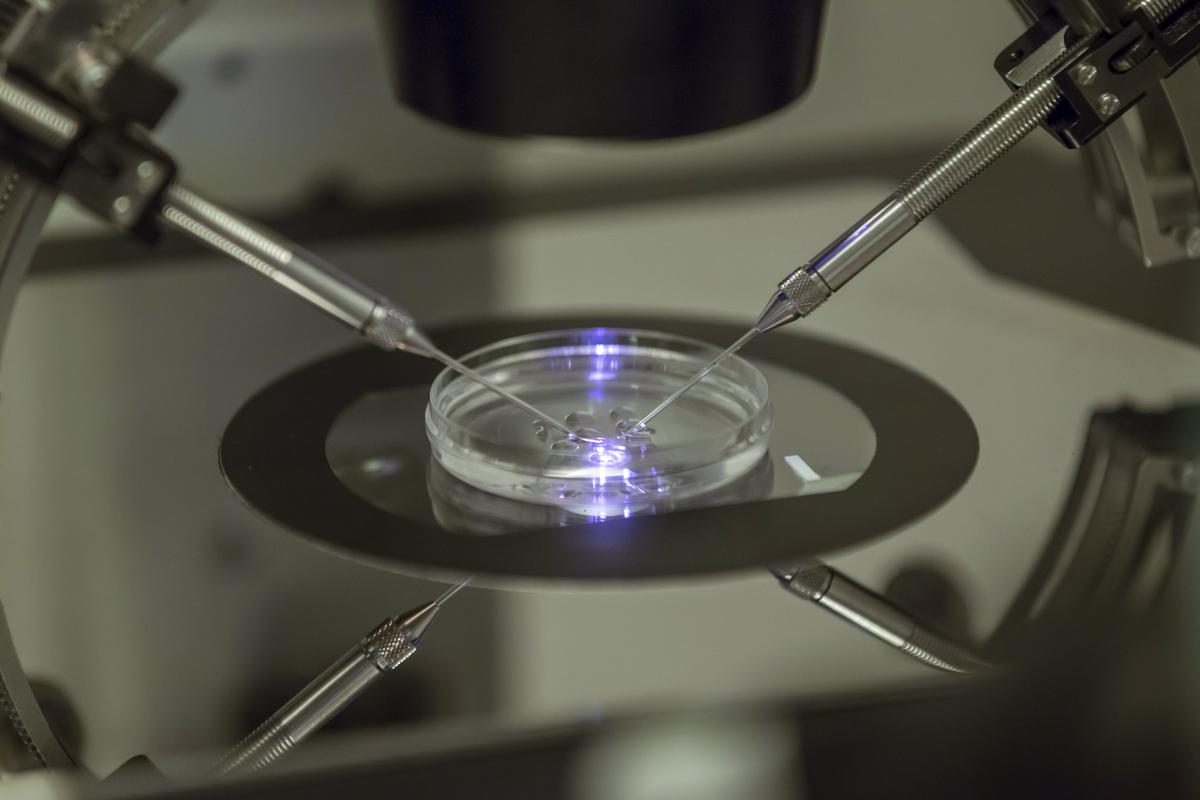- Earlier this year, the Health Ministry of India announced the Assisted Reproductive Technology Regulations (ART), 2023, with the goal of improving medical treatment and security for donors and patients.
- However, industry sources indicate that the new regulations have resulted in increased medical expenditures and complications for doctors and couples seeking ART due to donor shortages.

India’s Assisted Reproductive Technology (ART)
- ART refers to a variety of methods used to achieve pregnancy by manipulating sperm or egg cells outside of the human body and implanting embryos into the female reproductive tract.
- In India, it is governed under the Assisted Reproductive Technology (Regulation) Act 2021.
- The Indian Council of Medical Research (ICMR) regulates ART in India.
- In 2005, the National Guidelines for Accreditation, Supervision, and Regulation of ART Clinics were developed.
ART: Definition and Techniques
- ART treatments include sperm donation, in-vitro fertilisation (IVF), and gestational surrogacy.
- It entails manipulating sperm and egg cells in a lab setting in order to facilitate fertilisation and embryo development.
Types of ART Procedures permitted:
- IVF: Eggs and sperm are fertilised in a laboratory dish, and the resulting embryos are transported to the uterus.
- Intracytoplasmic Sperm Injection (ICSI) involves injecting a single sperm directly into an egg.
- Intrauterine Insemination (IUI): During ovulation, sperm is delivered directly into the uterus.
- Surrogacy: A surrogate mother carries and delivers a baby on behalf of another person or couple.
Salient Provisions of the ART (Regulation) Act 2021:
[A] Regulation of ART Clinics and Banks:
- ART clinics and banks must be registered with the National Registry of Banks and Clinics of India, which keeps a central database of these facilities.
- Renewal and Validity: Registration is valid for five years and can be renewed for another five years.
- Compliance and Penalties: Violations of the Act’s provisions may result in the institution’s registration being cancelled or suspended.
[B] Conditions for Sperm Donation and ART Services:
- Eligibility Criteria: Registered ART banks can screen, collect, and store sperm from men aged 21 to 55, as well as eggs from women aged 23 to 35.
- Female Donor Requirements: Female donors must be married and have at least one kid under the age of three.
- Parental Rights: A child born by ART is legally considered the couple’s biological child, and the donor has no parental rights to the kid.
[C] Consent and Insurance Coverage:
- Informed permission: Both the couple requesting the procedure and the donor must provide written informed permission for ART operations.
- Insurance Protection: The couple must offer insurance protection for the female donor against loss, injury, or death.
[D] ART Process Regulation:
- National and State Boards: The Surrogacy Act 2021 creates National and State Boards to oversee ART services.
- Advisory Role: These boards provide policy advice to the government, review and oversee law implementation, and develop a code of conduct for ART clinics and banks.
[E] Offences and Penalties:
- Child abandonment or exploitation, sale or trading of embryos, exploitation of couples or donors, and transfer of embryos into males or animals are all defined as crimes.
- Penalties: Offenders may face imprisonment for 8 to 12 years, as well as fines ranging from Rs 10 to 20 lakhs.
- Clinics and banks are barred from advertising or providing sex-selective ART, with penalties ranging from 5 to 10 years in prison and fines ranging from Rs 10 to 25 lakhs.
New ART Regulations Provisions for 2023
- Donation Recurrence Regulations limit the number of times a donor (male or female) can contribute sperm or oocytes in their lifetime.
- Donor Age Limits: The laws define age restrictions for oocyte donors, necessitating prior marriage and the presence of at least one living child.
- Gamete Distribution Restrictions: ART banks are not permitted to supply reproductive cells from a single donor to more than one commissioning couple.
- Insurance Coverage Requirement: Parties seeking ART services must offer oocyte donors with insurance coverage against any loss, damage, or death.
- Pre-Determined Sex Selection Prohibition: Clinics are barred from proposing to provide a kid of a pre-determined sex.
- Genetic Disease Screening: Genetic disease screening is required prior to embryo implantation.
Issues with these regulations
[A] Impact on Availability of Suitable Donors
- Restricted Opportunities: The new regulations severely limit ART couples’ ability to obtain acceptable donors, reducing their odds of successful treatment.
- Cost Increases: The restrictions on donation attempts have the potential to raise prices for couples that use assisted reproductive technologies.
- Couples Face Difficulties: As it becomes more difficult to find appropriate donors, the constraints cause difficulties for couples in need of ART treatments.
[B] Fertility Rate Implications:
- Fertility Rates Are Falling: India, like the rest of the world, is seeing a drop in fertility rates.
- Increased Difficulties: The new limitations are expected to worsen the difficulties experienced by couples seeking ART by further reducing the pool of suitable donors.
Conclusion
New ART regulations in India aim to improve safety and transparency, but have led to challenges in donor availability and declining fertility rates. Balancing regulation and patient access is crucial for couples’ well-being and assisted reproductive technology progress.
Source: https://www.thehindu.com/news/national/brought-in-to-protect-donors-and-prospective-parents-new-art-provisions-push-up-cost-and-challenges-in-assisted-conception/article67001330.ece
